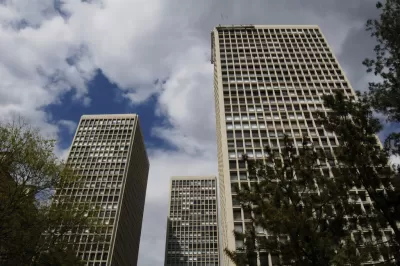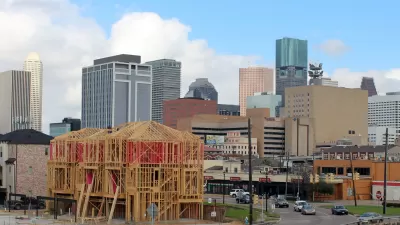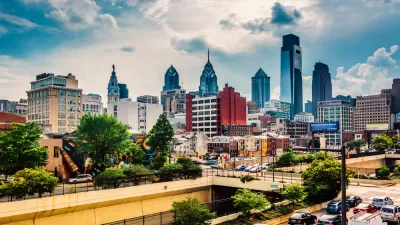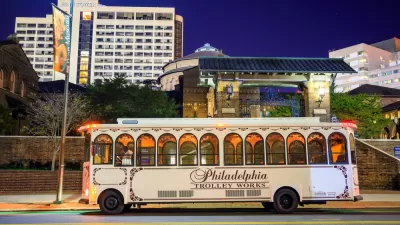Gentrified in the 1960s during the height of urban renewal, Society Hill is a historical precedent as Philadelphia confronts present-day gentrification.

Jake Blumgart and Jim Saksa give a long view on gentrification in Philly, focusing on neighborhoods like Society Hill that were "renewed" during the white flight era. "The reinvention of Society Hill in the 1960s is widely considered one of the first instances of gentrification — although no one called it that at the time. [...] No one wants to identify themselves as a gentrifier, not even a half-century later."
It's often said that gentrification begets displacement, but one question is how. "Displacement is notoriously difficult to track, especially because low-income renters move more frequently than the average population. The studies that have come out with conclusive data have found that gentrification is associated with minor levels of direct displacement, but that rising housing costs make it less likely for lower-income people to move into gentrifying neighborhoods."
As prices rise in so many urban cores, those concerned with equity want to avoid following in the footsteps of ultra-expensive coastal metros. As the University of Pennsylvania's Ken Steif put it, "Look at cities like New York and San Francisco that were in similar places 30 years ago. Trying to find equity in those cities nowadays is almost a lost cause. [...] We should be figuring out whether Philadelphia is going to undergo the same kind of shock that New York and San Francisco have, and how can we ensure that everyone is better for it."
FULL STORY: From slums to sleek towers: How Philly became cleaner, safer, and more unequal

Maui's Vacation Rental Debate Turns Ugly
Verbal attacks, misinformation campaigns and fistfights plague a high-stakes debate to convert thousands of vacation rentals into long-term housing.

Planetizen Federal Action Tracker
A weekly monitor of how Trump’s orders and actions are impacting planners and planning in America.

In Urban Planning, AI Prompting Could be the New Design Thinking
Creativity has long been key to great urban design. What if we see AI as our new creative partner?

King County Supportive Housing Program Offers Hope for Unhoused Residents
The county is taking a ‘Housing First’ approach that prioritizes getting people into housing, then offering wraparound supportive services.

Researchers Use AI to Get Clearer Picture of US Housing
Analysts are using artificial intelligence to supercharge their research by allowing them to comb through data faster. Though these AI tools can be error prone, they save time and housing researchers are optimistic about the future.

Making Shared Micromobility More Inclusive
Cities and shared mobility system operators can do more to include people with disabilities in planning and operations, per a new report.
Urban Design for Planners 1: Software Tools
This six-course series explores essential urban design concepts using open source software and equips planners with the tools they need to participate fully in the urban design process.
Planning for Universal Design
Learn the tools for implementing Universal Design in planning regulations.
planning NEXT
Appalachian Highlands Housing Partners
Mpact (founded as Rail~Volution)
City of Camden Redevelopment Agency
City of Astoria
City of Portland
City of Laramie





























